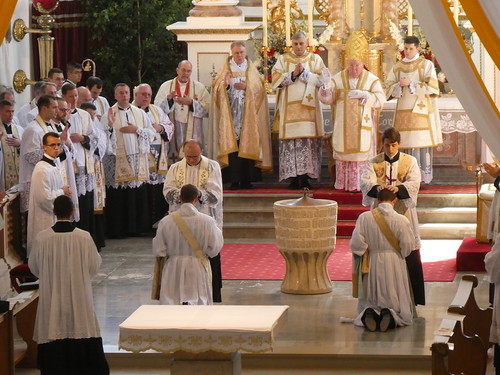Labels
- Bishops
- Chant
- Children
- Clerical abuse
- Conservative critics of the EF
- Correctio Filialis
- Fashion
- FIUV Position Papers
- Freemasonry
- Historical and Liturgical Issues
- Islam
- Liberal critics of the EF
- Marriage & Divorce
- Masculinity
- New Age
- Patriarchy
- Pilgrimages
- Pope Francis
- Pro-Life
- Reform of the Reform
- Young people
Tuesday, July 26, 2022
Radio discussion with Fr Robert McTeigue SJ
Thursday, July 14, 2022
New video on the LMS Walsingham Pilgrimage
Wednesday, July 13, 2022
Part-time Job opportunity at the Latin Mass Society
 |
| The current LMS Office, when it opened in 2009. |
Thursday, July 07, 2022
New podcasts: interview with Timothy Stanley
Tim writes in the Telegraph and is on Twitter as @timothy_stanley
Wednesday, July 06, 2022
Learn Latin this Summer! Residential and Online options
 |
| Mass at Park Place during the Guild of St Clare Sewing Retreat in the spring. |
Residential Latin Course, 8th - 13th August
Online Courses, July–October
Tuesday, July 05, 2022
What does Pope Francis mean in Desiderio desideravi?
 |
| The laying-on of hands at the recent priestly ordination in Bavaria for the Fraternity of St Peter. |
Desiderio desideravi: “with desire have I desired,” Our Lord said to His Disciples before the Last Supper, “to eat this Pasch with you.” The quaint Latin phrase is a literal translation of the Greek of the Gospels (Luke 22:15; Matthew 13:14), but it is no less quaint in Greek. It is in fact an expression at home in Hebrew, which does this kind of thing to express a superlative. No doubt this was an expression in use in Our Lord’s native Aramaic as well. The fidelity of a succession of translators has brought it to us today as something at once mysterious, poetic, intriguing, and rather beautiful. The effort necessary to understand it, its very elusiveness, has the effect of fixing it in our minds, and making it echo in our souls. To put it another way, the slight barrier to propositional understanding increases its transformative potential for us.
Every poet, every novelist, knows this. It is a mystery hidden, however, from modern Biblical translators, who come up with phrases like the one used in the English version of Pope Francis’ Apostolic Letter of this name: ‘I have earnestly desired.’ It is flat, utilitarian, and drab; defensible as a translation, to be sure, on modern principles, but about as memorable as a corporate mission statement.
Which is to be master, one may ask? The Church’s Tradition, which draws us in through mystery, or the flattened-out, dreary rationalism of liturgical Modernism? It is a problem with which Pope Francis struggles in this Letter. He sees the struggle in terms of avoiding two bad options, which present themselves as opposites.
I want the beauty of the Christian celebration and its necessary consequences for the life of the Church not to be spoiled by a superficial and foreshortened understanding of its value or, worse yet, by its being exploited in service of some ideological vision, no matter what the hue (16).
Friday, July 01, 2022
The Myth of Liberal Neutrality
Beleaguered liberal academics often appeal to the idea that universities should be neutral on substantive issues: they should teach the scientific or philosophical method, or the method of literary criticism, or whatever, but not enforce a single view of the correct answers. This kind of argument is also used in relation to schools, and in general to all the activities of the state. It is not just a bad argument, but a strategically disastrous one.
Classical liberals claim that what they want is simply a framework within which free enquiry can take place. The only limit to the debate which a classical liberal can accept is the defence of free enquiry itself. The only voices which are excluded are those which would silence other voices. But — they say — this is not a real limitation, a limit on what substantive results are allowable, because it is merely the limit imposed by rationality itself. Those who would silence other voices are rejecting rationality, in rejecting the value of the free debate which those voices would stimulate.



